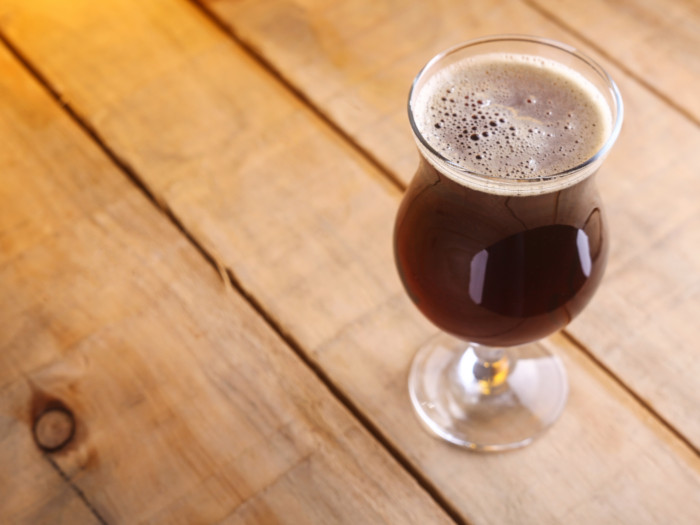Barley wine is actually a type of ale, with complex flavors and a very long history. Let us take a look at its origin, taste, ABV, and more.
What is Barley Wine?
Barley wine is a strong ale originating from England. It was commonly drunk during the latter end of the Middle Ages, making it one of the most traditional types of beer that remains in production today. Like all beers, this variety is made from fermented grain. The name ‘wine’ is a nod to the strength and complex flavors of the beverage. It is sometimes also written as one word, barleywine. [1]
Like grape wines, and unlike most beers, barley wine can age well if stored in a cool, dark location. This potent drink has similar alcoholic content to grape-derived wines, with a range of 8-12%.

Barley wine is a strong ale of between 6-11% alcohol by volume. Photo Credit: Shutterstock
Is Barley Wine Gluten-Free?
Unfortunately for those with an intolerance to gluten, this type of ale is made from grains and therefore contains gluten. However, an increasing number of breweries are offering gluten-free beer options, so keep an eye out for a gluten-free variety of this beer sometime in the near future.
What Does it Taste Like?
Barley wine is malty and sweet, and usually boasts complex flavors of citrus fruit, chocolate, toffee, and coffee. The liberal amount of hops used in the brewing also gives it a bitter and peppery edge. If you want to find out more about different kinds of ale, you can head over to Top 11 Types of Ale & Nutrition Facts. [2]
How to Make?
Unless you are an experienced brewer, we recommend purchasing a ‘Barley Wine Kit’, which will contain most of the ingredients needed for your brew, as well as clear instructions on how to best brew a delicious batch. Along with this kit, you will need white sugar, drinkable water, and very well sterilized brewing equipment. This specialty beer is best savored alone and should be served at 50-55F.
Adverse risks associated with alcohol consumption: The risks involved with drinking excessive alcohol can be short term such as violence and injuries to long-term health risks such as chronic diseases. According to the Centers for Disease Control and Prevention, people who should not drink alcohol include women who are pregnant, individuals younger than 21 years of age, and people who are recovering from alcoholism or cannot control the amount they drink. Also, it should be avoided by people who are planning to drive or any other activity that required focus and skill. However, different countries have different rules on alcohol purchase and consumption. [3]
